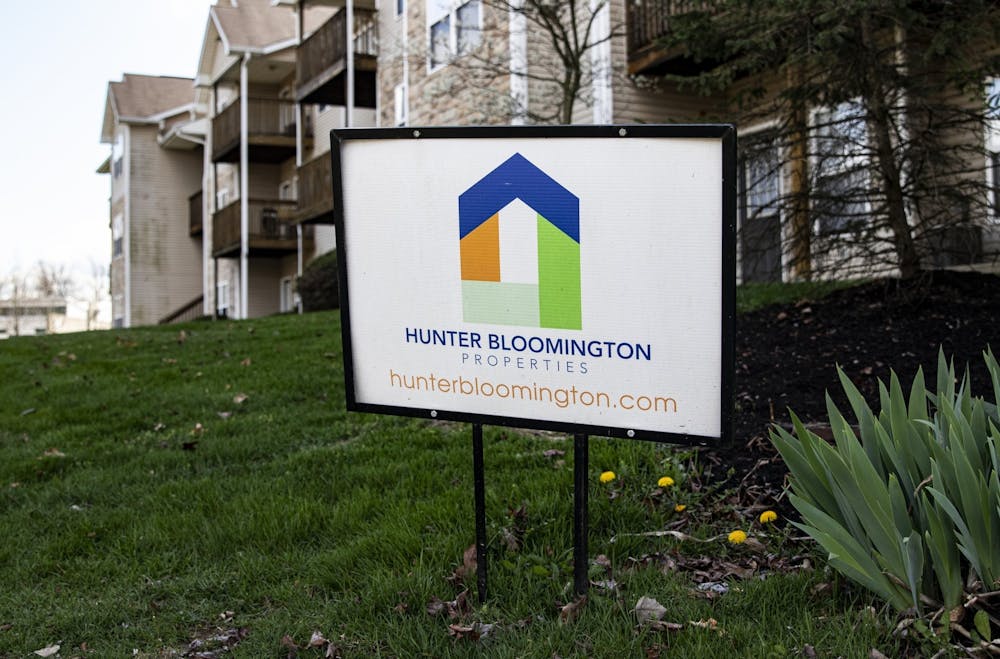Despite historic job losses caused by the COVID-19 crisis, millions of Americans will owe rent May 1. Economic instability may leave many of them wondering if they can afford it.
The federal government’s response has prioritized corporate well-being over housing security, while Indiana has offered limited protections. Without an adequate safety net, many residents must resort to direct action.
Tenants should collectively refuse to pay rent throughout the crisis. Government inaction has left few other options.
"If you had urgency, you would legislate like rent was due May 1 and make sure that we include rent and mortgage relief for our constituents," Rep. Alexandria Ocasio-Cortez, D-N.Y., told the House of Representatives last week.
The bills passed by Congress have provided little relief for the average renter, however. A one-time $1,200 payment, which excluded dependents over the age of 16, is not enough to sustain many throughout this crisis. Nearly a third of Americans do not believe the payment will last them a month, and 84% say they need another stimulus check, according to a March 31 Bankrate survey.
Meanwhile, the wealthy and corporations have largely benefitted from the actions of the federal government.
Coronavirus relief bills have allocated $4 trillion in loans for struggling companies. For large corporations, these loans often come with few strings attached. Unlike small or medium-sized companies, their aid is not conditioned on any employee protection. The Treasury secretary can also unilaterally waive other conditions, such as the prevention of stock buybacks or limits on executive compensation.
Initiatives intended to help American workers, such as the Paycheck Protection Program, have likewise been co-opted to assist the wealthy. The PPP is a loan intended to keep workers on payroll for businesses with under 500 employees, but the largest recipient of funds has been a hotel company that made $2.2 billion in 2019. The company, Ashford Inc., has laid off 95% of its employees but still received nearly $100 million in loans.
Most states, including Indiana, have issued a temporary halt on evictions. While essential to staving off homelessness in the immediate, some worry that unpaid rent could be used to evict tenants after the moratorium is lifted. Lacking this base protection, tenants must organize to defend their right to housing.
Bloomington housing advocates actively began to organize tenants from Hunter Bloomington Properties in March. After three residents refused or were unable to pay rent, the property manager seized appliances in their apartments. The subsequent blowback from Bloomington residents and on social media, though, led the company to walk back its decision and reinstall the appliances after two days.
Together, tenants and the wider Bloomington community have real power to pressure landlords to comply with their demands.
Affordable housing was difficult to find in Bloomington before the COVID-19 crisis. A 2018 apartment market overview from CBRE Group, Inc., reported that rent in Bloomington has increased 40% from 2007 to 2017. More than two-thirds of Bloomington’s renters to live in unaffordable homes, according to the housing development firm Annex Group. While tossing millions of Americans into uncertainty, the pandemic has also exposed the inequities that undergird the whole of U.S. society.
Through organizing, tenants can hope to improve their conditions during the pandemic and after. May 1, the day rent is due, is also May Day. The holiday celebrates the successes of the international labor movement, but it serves to remind us of the power of solidarity.
In New York, organizers are preparing for the largest rent strike in nearly a century. While precise numbers are unavailable, more than 10,000 New Yorkers have committed to the rent strike for May through an online pledge.
New York’s rent strike serves as a model for Bloomington and proves that power requires coordination. Speak with your neighbors about your options or ask your friends to join in striking. As many of us feel anxious about paying rent, it is important to remember that we are not alone.
This May Day, organize with your fellow tenants to fight for security today and into the coming months. Our government has failed to protect us. Our only recourse is to work together to build a world where no one lives in jeopardy.
Kyle Linder (he/him) is a junior studying journalism and international relations. He plans to pursue a career in media.






